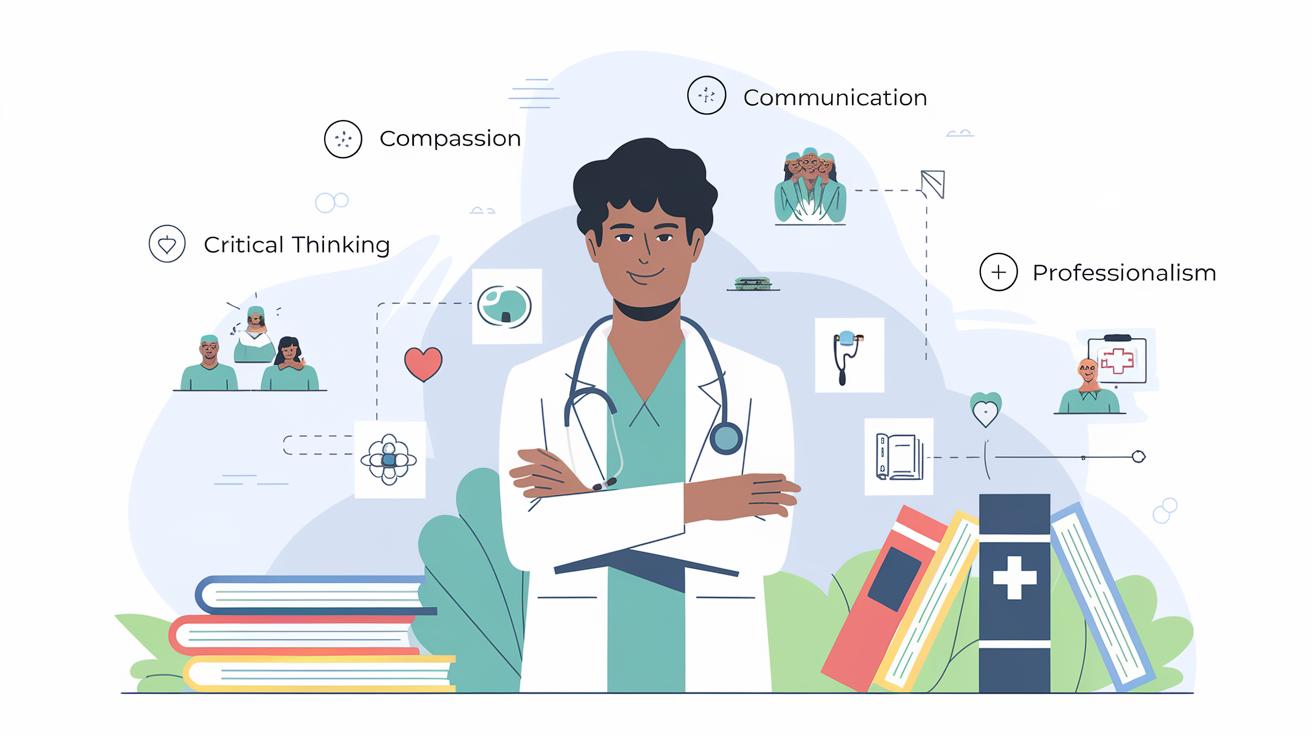What Makes a Great Doctor? Reflecting on the Core Traits Med Schools Look For
Becoming a great doctor requires more than just academic excellence and clinical skills. Medical schools seek candidates who embody a range of personal and professional qualities that contribute to outstanding patient care. Understanding these core traits can help pre-med students focus their efforts and stand out in the competitive admissions process.
1. Compassion and Empathy
Patients want to feel heard and understood. A great doctor possesses the ability to empathize with their patients and provide compassionate care.
Why It Matters:
Builds trust and rapport with patients.
Enhances patient satisfaction and treatment adherence.
Helps address emotional and psychological aspects of illness.
How to Develop It:
Engage in volunteer opportunities with underserved communities.
Practice active listening during patient interactions.
Reflect on personal experiences to cultivate emotional intelligence.
2. Strong Communication Skills
Effective communication is key to ensuring patients understand their diagnoses, treatment plans, and health conditions.
Why It Matters:
Prevents misunderstandings that could lead to medical errors.
Facilitates collaboration with healthcare teams.
Strengthens patient-centered care.
How to Develop It:
Take courses in public speaking and interpersonal communication.
Participate in mock patient interviews.
Seek feedback from mentors on your communication style.
3. Critical Thinking and Problem-Solving
Doctors must analyze complex medical information and make sound decisions under pressure.
Why It Matters:
Leads to accurate diagnosis and effective treatment plans.
Helps navigate unexpected complications.
Encourages evidence-based decision-making.
How to Develop It:
Utilize platforms like King of the Curve's Adaptive Q-Bank for practice.
Engage in clinical shadowing and case-based learning.
Stay updated on the latest medical research.
4. Adaptability and Resilience
Healthcare is an ever-changing field that demands adaptability and resilience to cope with challenges and setbacks.
Why It Matters:
Ensures doctors can handle high-stress environments.
Encourages continuous learning and growth.
Fosters a positive approach to difficult situations.
How to Develop It:
Take on leadership roles in student organizations.
Develop a growth mindset by embracing challenges.
Seek mentorship from experienced healthcare professionals.
5. Ethical Judgment and Professionalism
Medical ethics and professionalism are at the core of patient care and trust.
Why It Matters:
Ensures adherence to legal and ethical medical practices.
Promotes patient safety and confidentiality.
Builds credibility within the medical community.
How to Develop It:
Study medical ethics through courses and case studies.
Reflect on real-world ethical dilemmas.
Join professional medical organizations to learn from experts.
6. Passion for Lifelong Learning
Medicine is an evolving field, and a great doctor remains committed to lifelong learning and self-improvement.
Why It Matters:
Keeps doctors up-to-date with advancements in treatments and technology.
Encourages innovation and curiosity.
Enhances patient outcomes through evidence-based practice.
How to Develop It:
Stay engaged with continuing education opportunities.
Use King of the Curve to regularly refresh your knowledge.
Read medical journals and attend conferences.
7. Cultural Competence
Understanding and respecting diverse cultural backgrounds are essential for providing equitable healthcare.
Why It Matters:
Improves patient outcomes by acknowledging cultural beliefs and practices.
Reduces health disparities and biases.
Strengthens the patient-provider relationship.
How to Develop It:
Engage in cultural competency training programs.
Volunteer in diverse healthcare settings.
Learn multiple languages or basic medical terminology in various languages.
How King of the Curve Helps You Develop These Traits
King of the Curve provides pre-med students with essential tools to develop key competencies through:
Adaptive Q-Bank: Personalized learning to strengthen problem-solving and critical thinking skills.
Gamification Features: Boost motivation with curve coins and leaderboards.
Multiplayer Study Modes: Collaborate with peers to improve communication and teamwork.
Visual Aids: Enhance understanding of complex medical topics.
With over 100,000 downloads, King of the Curve helps students gain confidence and build the essential traits required to succeed in medical school and beyond.
Conclusion
Becoming a great doctor requires a blend of technical skills, interpersonal qualities, and a commitment to lifelong growth. By focusing on these core traits and leveraging the right resources, pre-med students can position themselves for success in medical school and their future medical careers.
Frequently Asked Questions (FAQs)
-
Compassion, communication, critical thinking, adaptability, and professionalism are key qualities.
-
Highlight experiences in clinical work, volunteer activities, and leadership roles in your personal statement and interviews.
-
KOTC provides personalized study tools and gamified learning features to help develop essential medical skills.
-
Practice through patient interactions, mock interviews, and communication workshops.
-
It ensures equitable and respectful care for patients from diverse backgrounds, improving health outcomes.


